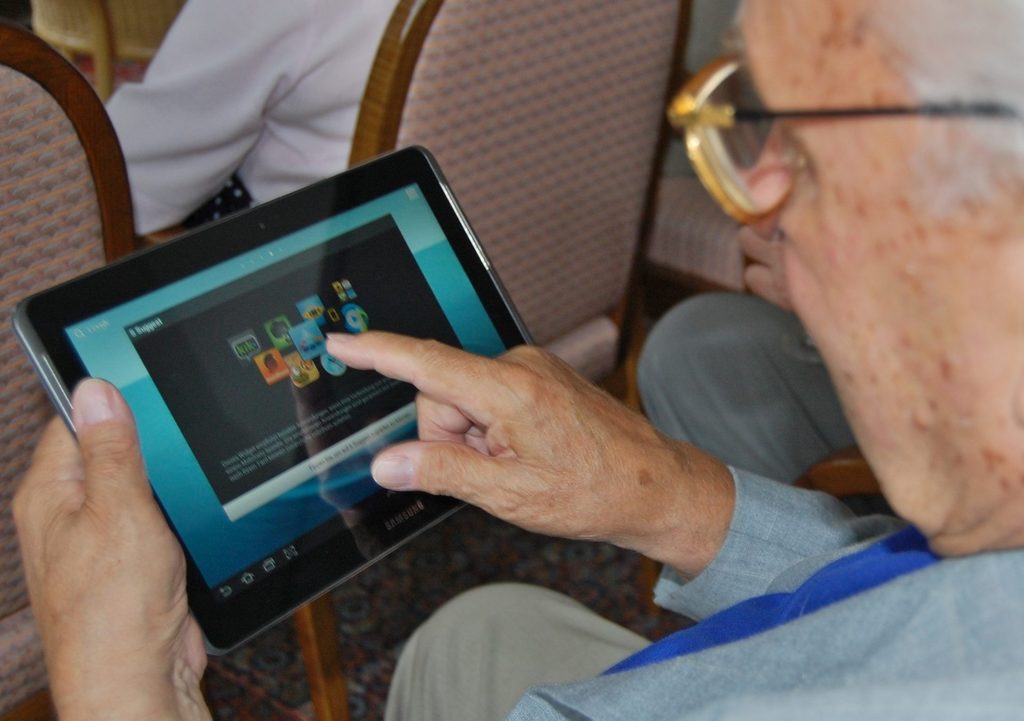While a growing number of older people are now able to navigate their way online for social or administrative purposes, a large group of elderly are still suffering from digital illiteracy in Belgium.
Society is digitising at lightning speed, and while this can make life much easier, those who do not keep up with this transformation risk being socially excluded, a problem especially apparent among the elderly, the Digital Ageing study by various Belgian universities showed.
Researchers from the Vrije Universiteit Brussel (VUB), Universiteit Antwerpen (UAntwerpen) and HOGENT found that the number of over-60s that considered themselves internet users increased rapidly in 20 years (from a quarter in 2004 to almost three-quarters by 2021).
However, the report stressed that this improvement should not lead to the conclusion that the older generation is completely digitally literate.
Sociodemographic gap
The researchers highlighted that as many as 4 in 10 older people did not have internet access, mainly people over 80, but more specifically women, the less educated, elderly with lower monthly household incomes and elderly who do not have "married" status. Especially widows and widowers found themselves without such access.
These sociodemographic inequalities became especially clear during the pandemic, which saw a rapid increase in online communication due to restrictions on physical contact.
While almost half of the elderly started using video chatting or image calling more during the pandemic to stay in contact with loved ones, the increasing use of image calling did not occur to the same extent among all elderly people, said Anina Vercruyssen (UAntwerpen).
"This increase also shows sociodemographic inequalities. We again saw the strongest increase among the youngest elderly (60-69 years) and among those who did not suffer financially from the crisis."
Meanwhile, among the groups of elderly people who would benefit most from Internet use, especially for socialising – such as people with mobility issues who are more likely to be housebound or lonely people – there are fewer Internet-active people.
Related News
- Belgian citizens can now see who accessed their personal data, and why
- Poverty risk will rise in Belgium after 2030, but not for everyone
"To address loneliness among the elderly also through digital means, internet access and use is a very important tool. But there are more non-users among moderately and severely lonely older people than among those who do not experience loneliness."
Researchers stressed that, for all ages, digital inclusion should involve access to affordable devices, gaining the necessary knowledge, and receiving support to deal with digital devices and applications, through family and friends but also through workshops.

